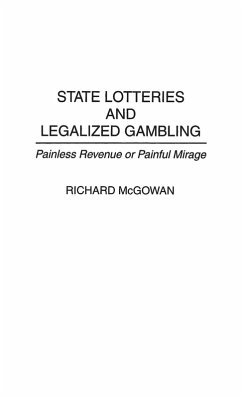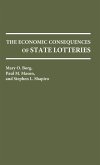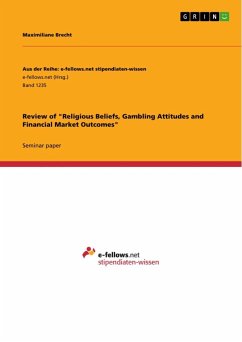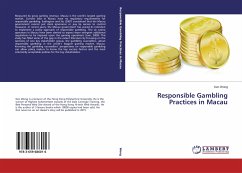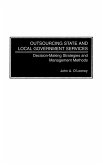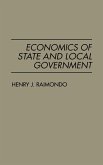Lotteries and state-sponsored gambling is big business. This is the first study that evaluates the business strategies of state lotteries on two fronts. First, it examines which of the lottery strategies produces the most consistent source of revenue for the state. Second, it analyzes possible overall gambling strategies that states will need to utilize as they seek to expand gambling revenue. This is must reading for those operating lotteries, state legislators, vendors to state lottery commissions, taxpayers, and scholars in public policy and government. The whole question of state-sponsored gambling is explored, integrating both the business and policy strategies of operating a state lottery. Initially, gambling and lotteries were introduced into the public policy process in times of social unrest, brought on by the outbreak of war. Since regular sources of governmental revenue were diverted to the war effort, proceeds from gambling activites were used to finance the building of roads, canals, and schools. An Ethics of Tolerance also had to evolve in order to engender the public's acceptance of lotteries and gambling. Today, states are using gambling revenues to support education, public transportation, and aid to local towns and cities. Hence, gambling revenues must be maintained or increased. States now must decide whether they should introduce other gambling initiatives, possibly cannibalizing their existing activities in the process. The basic question, of whether it is actually possible for a state to establish an overall gambling strategy, is explored by an analysis of the gambling policies of Massachusetts and Pennsylvania. The future of gambling in the United States, as states move beyond lotteries to sanctioning casino gambling by private entrepreneurs, concludes this most relevant and provocative book.
Hinweis: Dieser Artikel kann nur an eine deutsche Lieferadresse ausgeliefert werden.
Hinweis: Dieser Artikel kann nur an eine deutsche Lieferadresse ausgeliefert werden.

